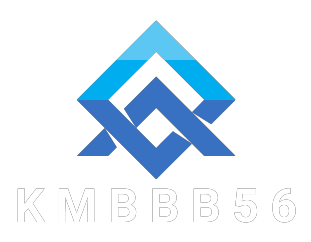In the ever-evolving world of e-commerce, businesses of all sizes are presented with an array of selling opportunities. One of the most lucrative and accessible options for entrepreneurs today is selling on online marketplaces marketplace. Whether you’re just starting out or looking to expand your reach, selling on platforms like Amazon, eBay, Etsy, or others can offer significant benefits that are hard to ignore.
Here are several reasons why you should start selling on a marketplace today:
1. Instant Access to a Massive Audience
Marketplaces are like bustling digital malls, drawing millions of visitors each day. When you list your products on a marketplace, you’re tapping into this vast customer base without the need to invest in building your own traffic from scratch. Whether you’re selling handmade crafts, tech gadgets, or beauty products, there’s likely a marketplace tailored to your niche, offering exposure to people actively searching for your products.
For new businesses, this access to a large pool of potential customers can be game-changing. Rather than relying on SEO, advertising, and building a website from the ground up, you can leverage the marketplace’s established traffic.
2. Reduced Marketing Costs
As a seller on a marketplace, much of the heavy lifting for marketing is already done for you. Marketplaces invest heavily in marketing, brand recognition, and SEO to ensure they remain competitive. This means you don’t have to spend as much money on ads or search engine optimization to get your products in front of potential buyers. Many platforms even offer built-in promotional tools like sponsored listings, discounts, or featured product placements, helping boost your visibility further.
For small businesses, these cost-effective marketing solutions can be a huge advantage, allowing you to focus more on creating and curating great products instead of worrying about ad spend.
3. Built-In Trust and Credibility
One of the challenges of selling online is establishing trust with customers. When buyers visit a marketplace like Amazon or eBay, they are already familiar with the platform and trust its security, payment systems, and return policies. By listing your products on these trusted platforms, you’re borrowing that credibility. Marketplaces offer customer reviews, ratings, and buyer protection programs that help foster trust in your brand.
When starting out, this built-in trust can be invaluable in converting first-time buyers into repeat customers.
4. Ease of Setup and Low Initial Costs
Setting up your own e-commerce website can require a significant investment in design, development, and ongoing maintenance. Marketplaces, on the other hand, offer a simple and streamlined setup process. You don’t need to worry about hosting fees, design, or backend technicalities. Most marketplaces provide easy-to-use interfaces that guide you through setting up your store and listing products.
Additionally, the upfront cost to start selling is generally much lower compared to launching a full-fledged e-commerce site. This makes it an ideal option for those who want to test the waters before committing significant resources to a standalone website.
5. Global Reach
One of the greatest benefits of selling on a marketplace is the ability to reach a global audience. Marketplaces like Amazon, eBay, and Etsy have international customers, and with the right shipping strategies, you can quickly expand your sales to multiple countries without having to establish a physical presence in those regions. Many marketplaces handle international transactions and shipping, making it easier for you to sell globally without worrying about logistical complexities.
6. Convenient Payment Processing
Marketplaces handle all the payment processing for you, which is one of the most time-consuming aspects of running an online store. You don’t need to worry about setting up a merchant account or dealing with the complexities of accepting various payment methods. Most marketplaces offer secure payment systems that process transactions quickly and deposit funds into your account, often within a few days.
This simplifies the entire sales process, allowing you to focus on what matters most—growing your business.
7. Scalability
As your business grows, marketplaces can help you scale effortlessly. You can easily add new products to your store, expand into different categories, and explore different geographical markets. The platform itself is designed to accommodate sellers of all sizes, so whether you’re a solo entrepreneur or a larger business, you can manage your inventory, sales, and orders from one central dashboard.
Additionally, some marketplaces offer fulfillment services, like Amazon’s FBA (Fulfillment by Amazon), which allows you to store your products in their warehouses and have them handle everything from packing to shipping.
8. Access to Data and Insights
Marketplaces often provide valuable analytics and insights that can help you understand your business better. From sales data to customer behavior, you’ll be able to track what’s working and where you can improve. This can help you make more informed decisions about your products, pricing, and marketing strategies.
For example, some platforms offer data on your competitors, allowing you to adjust your offerings based on market trends and customer preferences.
Conclusion
In today’s competitive e-commerce environment, selling on a marketplace can give you a significant edge. It provides access to a large audience, lowers marketing costs, and eliminates many of the challenges that come with running an independent online store. Whether you’re looking to test the waters of online selling or expand your existing business, marketplaces offer a powerful and scalable platform for growth.
